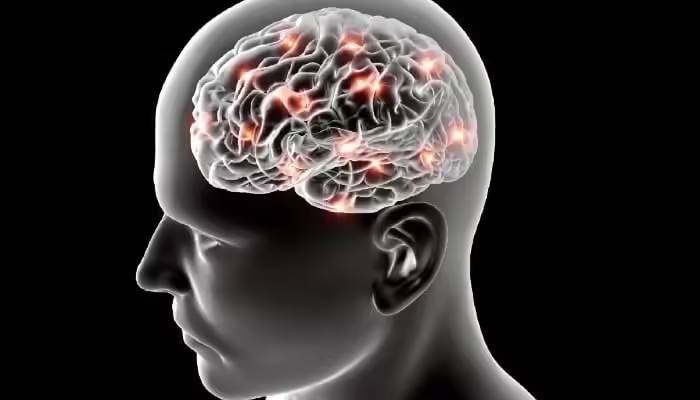As we age, the deterioration of brain function becomes a natural process. However, research has shown that there are simple activities we can engage in daily to help slow down or even prevent this mental decline. These activities can help preserve cognitive abilities and may even offer protection against serious brain conditions like Alzheimer’s and dementia.
The Role of Reading in Mental Health
One of the most effective ways to prevent age-related mental decline is through reading. A study published in the journal Cognitive Enhancement highlights the significant impact of daily reading on mental health. Whether it’s a newspaper, magazine, or book, reading can help reverse the process of cognitive decline. The study suggests that consistent mental activity, such as reading, can have a protective effect on the brain.
Research further shows that frequent reading improves memory, attention span, and the speed at which the brain processes information. As people age, their cognitive abilities tend to diminish, but by staying mentally engaged through reading, the decline can be slowed. Moreover, reading is not just a passive activity—it stimulates different parts of the brain, keeping it sharp and alert.
Mental Stimulation through Games and Puzzles
In addition to reading, other mentally stimulating activities like playing games and solving puzzles can also benefit the brain. Games such as chess, cards, and board games engage the mind and improve mental agility. Puzzles, like crosswords and Sudoku, challenge cognitive abilities and provide a workout for the brain. These activities keep the brain young and help prevent the deterioration of cognitive functions.
The research included in the Cognitive Enhancement journal study involved around 6,000 people diagnosed with mild dementia. The health of these individuals was monitored over the course of eight years, with the participants divided into three groups based on the level of their mental decline. The study found that regular participation in mentally engaging activities significantly slowed the rate of brain deterioration in all three groups.
How Brain-Engaging Activities Benefit Mental Health
So why do these activities work? Engaging in activities that challenge the brain—whether it be reading, playing games, or solving puzzles—stimulates cognitive function. Mental engagement strengthens neural connections, helping maintain brain plasticity. In turn, this helps slow down memory loss and enhances mental clarity.
The research specifically noted improvements in memory retention, attention span, and mental processing speed among individuals who regularly participated in such brain-stimulating activities. Even those with mild dementia experienced a slower rate of mental decline when compared to those who did not engage in these activities.
A Positive Lifestyle’s Impact on the Brain
Aside from games and reading, adopting an overall positive and active lifestyle can also benefit mental health. Exercise, a healthy diet, and stress reduction all play a role in maintaining brain health as we age. A well-rounded lifestyle that prioritizes both physical and mental well-being can act as a buffer against cognitive decline.
Experts agree that maintaining an active lifestyle not only helps the body but also benefits the mind. Activities that involve social interaction, physical movement, and mental engagement promote a healthy brain. For example, combining a walk with a stimulating conversation can have a double effect, benefiting both physical health and cognitive function.
The Growing Concern Over Dementia
Dementia affects millions of people worldwide, and with an aging population, the numbers are expected to rise. According to researchers, preventing dementia or delaying its onset should be a priority, given the lack of a definitive cure for the condition. While the exact cause of dementia remains unclear, research suggests that regular mental stimulation can help slow its progression and offer protection against its onset.
This is why adopting daily habits that challenge the brain is essential. Whether it’s picking up a book, playing a game of chess, or solving a crossword puzzle, these small actions can have a significant impact on cognitive health over time. It’s never too late to start incorporating these habits into your routine to protect your brain from age-related decline.
Practical Steps to Keep the Brain Sharp
To maintain mental sharpness as you age, here are a few practical steps you can take:
Read Daily: Make it a habit to read a newspaper, book, or magazine. This not only keeps you informed but also engages the brain in complex thought processes.
Play Games: Incorporate mentally stimulating games like chess, cards, or board games into your routine. These games challenge the mind and improve cognitive functions.
Solve Puzzles: Engage in puzzles like crosswords, Sudoku, or brainteasers. These activities require concentration and problem-solving, both of which are beneficial for brain health.
Stay Physically Active: Exercise has been shown to boost mental health. Activities like walking, cycling, or yoga not only benefit the body but also enhance brain function.
Maintain a Healthy Diet: A balanced diet rich in fruits, vegetables, and healthy fats can support brain health and reduce the risk of cognitive decline.
Socialize: Engage in meaningful conversations and social activities. Social interactions stimulate the brain and keep it engaged.
As research shows, even simple daily activities like reading, playing games, and solving puzzles can have a profound effect on maintaining brain health and preventing age-related mental decline. These activities not only improve cognitive function but may also offer protection against serious brain diseases like Alzheimer’s and dementia. By adopting a positive lifestyle that keeps the brain engaged, individuals can help ensure mental sharpness throughout their later years.


